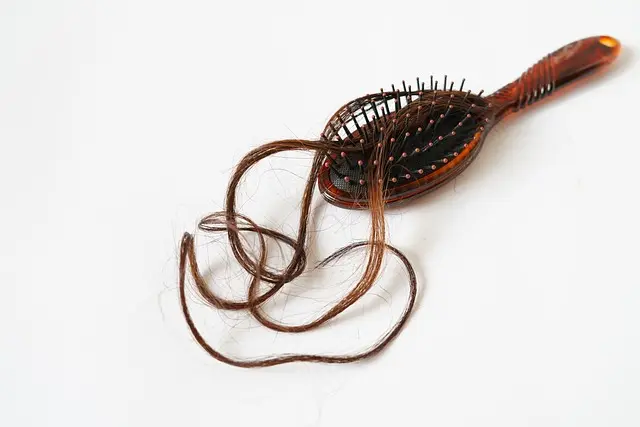Causes of Hair Loss
There are several types of hair loss, each with its own set of causes. Androgenetic alopecia, commonly known as male or female pattern baldness, is the most prevalent form and is largely influenced by genetics and hormonal factors. Other types of hair loss include alopecia areata, an autoimmune condition that causes patchy hair loss, and telogen effluvium, which results from physical or emotional stress, leading to widespread thinning of hair. Understanding the specific type and cause of hair loss is crucial in determining the most appropriate treatment approach.
Topical Treatments
Topical treatments are among the most common and widely used options for managing hair loss. Minoxidil, an over-the-counter medication, is a popular choice that helps stimulate hair growth and slow down hair loss. Applied directly to the scalp, minoxidil can be effective for both men and women, especially in the early stages of hair thinning. Another topical treatment is ketoconazole, an antifungal shampoo that can help reduce inflammation and treat dandruff, potentially improving scalp health and supporting hair growth. Consistent use is key to seeing results with topical treatments.
Oral Medications
Oral medications can also play a significant role in treating hair loss. Finasteride, a prescription medication, is commonly used for male pattern baldness. It works by inhibiting the production of dihydrotestosterone (DHT), a hormone that contributes to hair loss. For women, oral contraceptives and spironolactone can help manage hair loss related to hormonal imbalances. These medications require a doctor’s prescription and regular monitoring due to potential side effects. Oral treatments can be effective but should be used under medical supervision to ensure safety and efficacy.
Natural and Alternative Treatments
Many individuals seek natural and alternative treatments for hair loss, often as complementary approaches alongside conventional methods. Herbal supplements like saw palmetto and ginseng are believed to support hair health, although scientific evidence is limited. Essential oils, such as rosemary and peppermint, can be massaged into the scalp to potentially promote hair growth. Additionally, lifestyle changes, including a balanced diet rich in vitamins and minerals, regular exercise, and stress management techniques, can positively impact hair health. While natural treatments may offer some benefits, it’s important to approach them with realistic expectations.
Hair Transplant Surgery
For those seeking a more permanent solution to hair loss, hair transplant surgery is an option worth considering. This surgical procedure involves removing hair follicles from one part of the body, typically the back or sides of the scalp, and transplanting them to areas with thinning or no hair. Techniques such as Follicular Unit Transplantation (FUT) and Follicular Unit Extraction (FUE) have advanced significantly, offering natural-looking results. Hair transplant surgery can be costly and requires recovery time, but it provides a long-term solution for many individuals experiencing significant hair loss.
Platelet-Rich Plasma (PRP) Therapy
Platelet-Rich Plasma (PRP) therapy is a newer treatment that has gained popularity for its potential to promote hair growth. The procedure involves drawing a small amount of the patient’s blood, processing it to concentrate the platelets, and then injecting the platelet-rich plasma into the scalp. PRP contains growth factors that may stimulate hair follicles and improve hair density. While research on PRP therapy for hair loss is still evolving, early results are promising. PRP therapy is considered a minimally invasive treatment with few side effects, making it an appealing option for many.
Laser Therapy
Laser therapy, also known as low-level laser therapy (LLLT), is a non-invasive treatment that uses red light to stimulate hair growth. Devices such as laser combs, helmets, and caps are available for home use, providing convenient options for regular treatment. The red light is believed to improve blood flow to the scalp and increase cellular activity in hair follicles, promoting growth. Laser therapy is generally considered safe, with few reported side effects. However, it requires consistent use over several months to achieve noticeable results, and its effectiveness can vary among individuals.
Psychological Support
Dealing with hair loss can be emotionally challenging, and seeking psychological support is an important aspect of treatment. Counseling or therapy can help individuals cope with the stress, anxiety, and self-esteem issues associated with hair loss. Support groups and online communities also offer valuable platforms for sharing experiences and advice. For many, addressing the emotional impact of hair loss is as crucial as treating the physical symptoms. A holistic approach that includes psychological support can significantly improve overall well-being and quality of life for those affected by hair loss.
Choosing the Right Treatment
Selecting the right treatment for hair loss involves considering various factors, including the type and extent of hair loss, underlying causes, lifestyle, and personal preferences. Consulting with a healthcare professional or a dermatologist is essential to accurately diagnose the condition and develop a tailored treatment plan. Combining multiple treatments, such as topical solutions, oral medications, and lifestyle changes, may offer the best results. Ultimately, the goal is to find a solution that not only addresses the physical aspects of hair loss but also supports emotional and psychological well-being.
Conclusion
Hair loss is a multifaceted issue that affects individuals both physically and emotionally. With a wide range of treatments available, from topical and oral medications to surgical and alternative therapies, there are options to suit various needs and preferences. Understanding the underlying causes of hair loss and seeking professional guidance can help individuals choose the most effective treatments. Addressing hair loss with a holistic approach that includes psychological support is crucial for overall well-being. As research and technology continue to advance, new and improved treatments for hair loss are likely to emerge, offering hope and solutions for those affected by this common condition.

